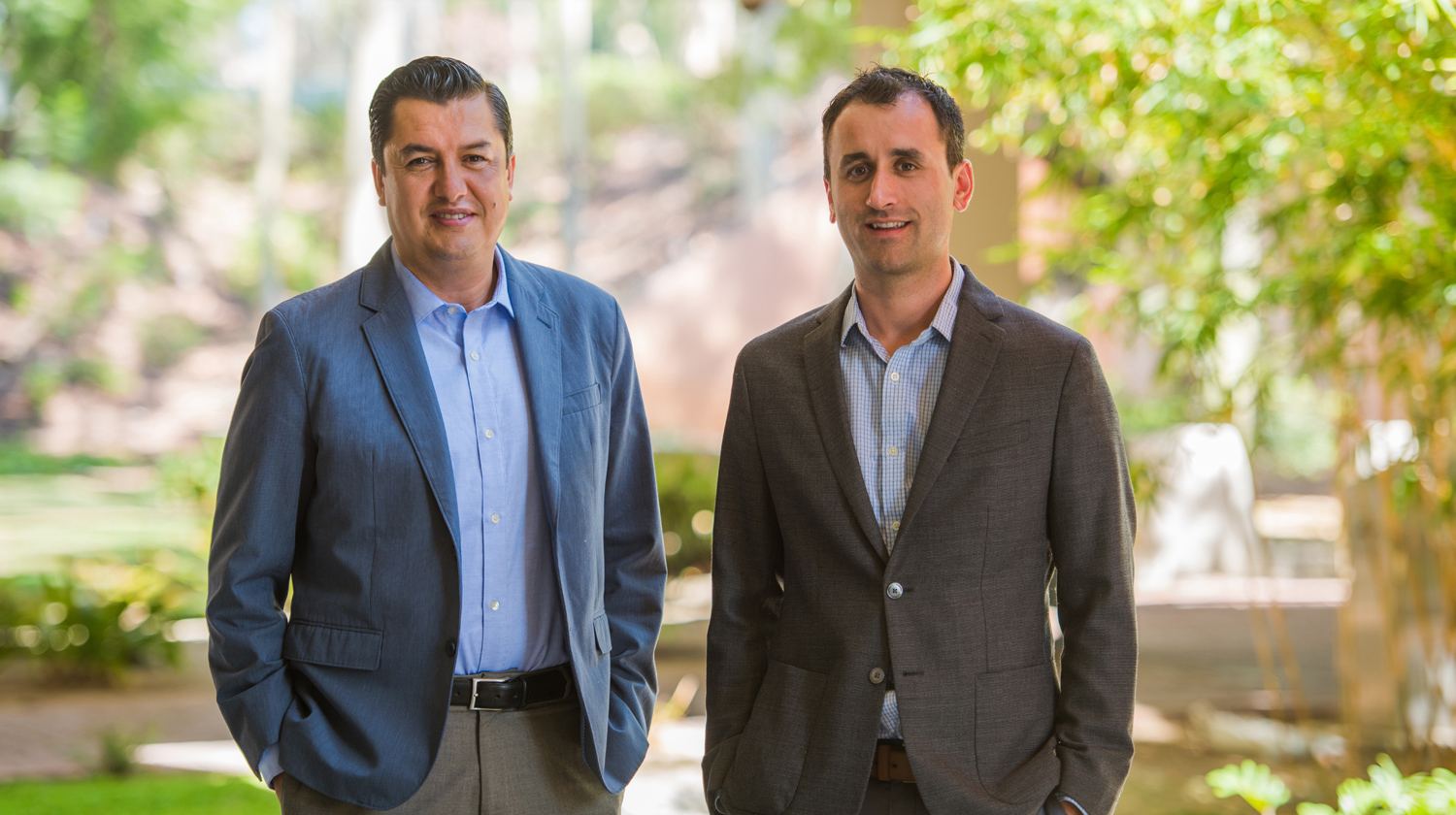
From the arts and education to public administration and economics, California State University, Dominguez Hills (CSUDH) students from several disciplines painstakingly made one cold call after another until nearly every foreign-owned enterprise in Southern California was surveyed to examine their economic impact in the region.
The time-intensive survey that the 15 CSUDH students conducted served as the statistical foundation for the research report “Foreign Direct Investment in SoCal, 2017 Edition,” which was developed by the new South Bay Economics Institute at CSUDH for the World Trade Center Los Angeles. The report updated and provided a comparative analysis to a 2016 report of the same name by Los Angeles Economic Development Corporation (LAEDC) that examined the economic impact of foreign investment on jobs, firms, and wages in all six Southern California counties.
The 2017 report was the first large-scale research project commissioned to the South Bay Economics Institute, which was launched by Jose N. Martinez, assistant professor of economics, and Fynnwin Prager, assistant professor of public administration, in early 2016. Housed in CSUDH’s College of Business Administration and Public Policy, the institute provides the region–with particular focus on the South Bay–innovative economic curriculum and research that bridges student learning and faculty expertise with the business sector. University partners benefit from proven high-impact resources, economic analysis projects, mentoring, research programs, community outreach opportunities, and more.
“The idea for the Economics Institute spawned from the university’s South Bay Economic Forecast, which is now in its third year,” said Martinez. “We knew that my focus on economics and Fynnwin’s on public administration would enable the institute to be disciplined with analysis, yet contemplative and inclusive in its approach to research and problem solving.”
Comprehensive hands-on research and experience has proven attractive to students who know that exposure to contemporary business practices is important for professionals in all industries.
“The typical research assistant is crunching numbers and collecting data, but what the institute offers is more complete and interesting,” said Martinez. “For example, our students were involved in discussions regarding how to design surveys, collect data, make phone calls, and then analyze the data. They got some well-rounded business education, and the fact that their peers were from many disciplines made it even more inviting for them.”
This university is clearly having an impact on local economies, big and small, and our growth potential is exceptional. – Jose N. Martinez
Based in part on the results of the survey the students conducted, the institute’s foreign investment report found that there are an estimated 9,964 foreign-owned firms in Southern California, representing 1.2 percent of all firms in the region and employing 4.3 percent of the region’s workers, who earn close to $27.4 billion in wages. Japanese firms remain the largest contributor to Southern California with the United Kingdom, Canada, France, and Germany completing the top five nations.
This summer, the professors shared their and the students’ work at the 3rd annual SelectLA Investment Summit, an event attended by approximately 400 foreign investors and local leaders.
“The report was well received and our clients were happy with the results,” said Prager. “This is important data to have available for investors. They may now use the updated study to promote the area, and to show that there are benefits for companies coming here, despite the current political environment. There are many foreign-owned firms in So Cal in a variety of industries, and more of them continue to come. This data is critical.”
Cross-Campus Collaboration
A large part of the institute’s mission is to help facilitate faculty economic development by providing research resources, grant writing, connections to local business and civic communities, and other services.
“The faculty’s expertise and cultural diversity provide a lot of unique collaboration opportunities on campus, which fits in well with the institute,” said Martinez. “In economics, we look at data, how it is applied, and interpret the results, but that can often lack such nuances as the policy implications of the work we’re doing. Public administration, for example, provides the ‘why this matters’ to the work for clients and the public at large. There is potential for many faculty members to provide their unique knowledge and skills to economic research.”
Whether it is for a new business project, environmental impact report, or other types of studies, Prager believes “there is clearly a demand in the marketplace” for the South Bay Economics Institute and the university to assist local businesses and organizations, as well as non-governmental organizations (NGO) like the LAEDC.
In fact, the institute may soon launch a project with a faculty member to research the impact of local economic development agencies, such as the LAEDC, on entrepreneurial activity in the region.
“There are so many business resources on campus, and it keeps growing,” said Prager. “We have the Innovation Incubator, the Entrepreneurial Institute@CSUDH, and an exceptional business college. This university is clearly having an impact on local economies–big and small–and our growth potential is exceptional.”